- Home
- Cao Xueqin
The Dream of the Red Chamber Page 10
The Dream of the Red Chamber Read online
Page 10
"The Hsüeh family have plenty of money, so that if your Worship adjudicates that they should pay five hundred, they can afford it, or one thousand will also be within their means; and this sum can be handed to the Feng family to meet the outlay of burning incense and burial expenses. The Feng family are, besides, people of not much consequence, and (the fuss made by them) being simply for money, they too will, when they have got the cash in hand, have nothing more to say. But may it please your worship to consider carefully this plan and see what you think of it?"
"It isn't a safe course! It isn't a safe course!" Yü-ts'un observed as he smiled. "Let me further think and deliberate; and possibly by succeeding in suppressing public criticism, the matter might also be settled."
These two closed their consultation by a fixed determination, and the next day, when he sat in judgment, he marked off a whole company of the plaintiffs as well as of the accused, as were mentioned by name, and had them brought before him. Yü-ts'un examined them with additional minuteness, and discovered in point of fact, that the inmates of the Feng family were extremely few, that they merely relied upon this charge with the idea of obtaining some compensation for joss-sticks and burials; and that the Hsüeh family, presuming on their prestige and confident of patronage, had been obstinate in the refusal to make any mutual concession, with the result that confusion had supervened, and that no decision had been arrived at.
Following readily the bent of his feelings, Yü-ts'un disregarded the laws, and adjudicated this suit in a random way; and as the Feng family came in for a considerable sum, with which to meet the expense for incense and the funeral, they had, after all, not very much to say (in the way of objections.)
With all despatch, Yü-ts'un wrote and forwarded two letters, one to Chia Cheng, and the other to Wang Tzu-t'eng, at that time commander-in-chief of a Metropolitan Division, simply informing them: that the case, in which their worthy nephew was concerned, had come to a close, and that there was no need for them to give way to any extreme solicitude.
This case had been settled through the exclusive action of the young priest of the Hu Lu temple, now an official Retainer; and Yü-ts'un, apprehending, on the other hand, lest he might in the presence of others, divulge the circumstances connected with the days gone by, when he was in a state of penury, naturally felt very unhappy in his mind. But at a later period, he succeeded, by ultimately finding in him some shortcoming, and deporting him to a far-away place, in setting his fears at rest.
But we will put Yü-ts'un on one side, and refer to the young man Hsüeh, who purchased Ying Lien, and assaulted Feng Yuan to death.
He too was a native of Chin Ling and belonged to a family literary during successive generations; but this young Hsüeh had recently, when of tender age, lost his father, and his widowed mother out of pity for his being the only male issue and a fatherless child, could not help doating on him and indulging him to such a degree, that when he, in course of time, grew up to years of manhood, he was good for nothing.
In their home, furthermore, was the wealth of a millionaire, and they were, at this time, in receipt of an income from His Majesty's privy purse, for the purvey of various articles.
This young Hsüeh went at school under the name of P'an. His style was Wen Ch'i. His natural habits were extravagant; his language haughty and supercilious. He had, of course, also been to school, but all he knew was a limited number of characters, and those not well. The whole day long, his sole delight was in cock-fighting and horse-racing, rambling over hills and doing the sights.
Though a Purveyor, by Imperial appointment, he had not the least idea of anything relating to matters of business or of the world. All he was good for was: to take advantage of the friendships enjoyed by his grandfather in days of old, to present himself at the Board of Revenue to perfunctorily sign his name and to draw the allowance and rations; while the rest of his affairs he, needless to say, left his partners and old servants of the family to manage for him.
His widowed mother, a Miss Wang, was the youngest sister of Wang Tzu-t'eng, whose present office was that of Commander-in-Chief of a Metropolitan Division; and was, with Madame Wang, the spouse of Chia Cheng, of the Jung Kuo Mansion, sisters born of one mother. She was, in this year, more or less forty years of age and had only one son: this Hsüeh P'an.
She also had a daughter, who was two years younger than Hsüeh P'an, and whose infant name was Pao Ch'ai. She was beautiful in appearance, and elegant and refined in deportment. In days gone by, when her father lived, he was extremely fond of this girl, and had her read books and study characters, so that, as compared with her brother, she was actually a hundred times his superior. Having become aware, ever since her father's death, that her brother could not appease the anguish of her mother's heart, she at once dispelled all thoughts of books, and gave her sole mind to needlework, to the menage and other such concerns, so as to be able to participate in her mother's sorrow, and to bear the fatigue in lieu of her.
As of late the Emperor on the Throne held learning and propriety in high esteem, His Majesty called together and singled out talent and ability, upon which he deigned to display exceptional grace and favour. Besides the number called forth from private life and chosen as Imperial secondary wives, the daughters of families of hereditary official status and renown were without exception, reported by name to the authorities, and communicated to the Board, in anticipation of the selection for maids in waiting to the Imperial Princesses and daughters of Imperial Princes in their studies, and for filling up the offices of persons of eminence, to urge them to become excellent.
Ever since the death of Hsüeh P'an's father, the various assistants, managers and partners, and other employes in the respective provinces, perceiving how youthful Hsüeh P'an was in years, and how much he lacked worldly experience, readily availed themselves of the time to begin swindling and defrauding. The business, carried on in various different places in the capital, gradually also began to fall off and to show a deficit.
Hsüeh P'an had all along heard that the capital was the one place for gaieties, and was just entertaining the idea of going on a visit, when he eagerly jumped at the opportunity (that presented itself,) first of all to escort his sister, who was going to wait for the selection, in the second place to see his relatives, and in the third to enter personally the capital, (professedly) to settle up long-standing accounts, and to make arrangements for new outlays, but, in reality, with the sole purpose of seeing the life and splendour of the metropolis.
He therefore, had, at an early period, got ready his baggage and small luggage, as well as the presents for relatives and friends, things of every description of local production, presents in acknowledgment of favours received, and other such effects, and he was about to choose a day to start on his journey when unexpectedly he came in the way of the kidnapper who offered Ying Lien for sale. As soon as Hsüeh P'an saw how distinguée Ying Lien was in her appearance, he formed the resolution of buying her; and when he encountered Feng Yüan, come with the object of depriving him of her, he in the assurance of superiority, called his sturdy menials together, who set upon Feng Yüan and beat him to death. Forthwith collecting all the affairs of the household, and entrusting them one by one to the charge of some members of the clan and several elderly servants of the family, he promptly took his mother, sister and others and after all started on his distant journey, while the charge of homicide he, however, treated as child's play, flattering himself that if he spent a few filthy pieces of money, there was no doubt as to its settlement.
He had been on his journey how many days, he had not reckoned, when, on a certain day, as they were about to enter the capital, he furthermore heard that his maternal uncle, Wang Tzu-t'eng, had been raised to the rank of Supreme Governor of nine provinces, and had been honoured with an Imperial command to leave the capital and inspect the frontiers.
Hsüeh P'an was at heart secretly elated. "I was just lamenting," he thought, "that on my visit to the capital, I would h
ave my maternal uncle to exercise control over me, and that I wouldn't be able to gambol and frisk to my heart's content, but now that he is leaving the capital, on promotion, it's evident that Heaven accomplishes man's wishes."
As he consequently held consultation with his mother; "Though we have," he argued, "several houses of our own in the capital, yet for these last ten years or so, there has been no one to live in them, and the people charged with the looking after them must unavoidably have stealthily rented them to some one or other. It's therefore needful to let servants go ahead to sweep and get the place in proper order, before we can very well go ourselves."
"What need is there to go to such trouble?" retorted his mother; "the main object of our present visit to the capital is first of all to pay our respects to our relatives and friends; and it is, either at your elder uncle's, my brother's place, or at your other uncle's, my sister's husband's home, both of which families' houses are extremely spacious, that we can put up provisionally, and by and bye, at our ease, we can send servants to make our house tidy. Now won't this be a considerable saving of trouble?"
"My uncle, your brother," suggested Hsüeh P'an, "has just been raised to an appointment in an outside province, so that, of course, in his house, things must be topsy-turvey, on account of his departure; and should we betake ourselves, like a hive of bees and a long trail, to him for shelter; won't we appear very inconsiderate?"
"Your uncle," remarked his mother, "is, it is true, going on promotion, but there's besides the house of your aunt, my sister. What is more, during these last few years from both your uncle's and aunt's have, time after time, been sent messages, and letters forwarded, asking us to come over; and now that we've come, is it likely, though your uncle is busy with his preparations to start on his journey, that your aunt of the Chia family won't do all she can to press us to stay? Besides, were we to have our house got ready in a scramble, won't it make people think it strange? I however know your idea very well that were we kept to stay at your uncle's and aunt's, you won't escape being under strict restraint, unlike what would be the case were we to live in our own house, as you would be free then to act as you please! Such being the case, go, on your own account, and choose some place to take up your quarters in, while I myself, who have been separated from your aunt and cousins for these several years, would however like to stay with them for a few days; and I'll go along with your sister and look up your aunt at her home. What do you say; will this suit you or not?"
Hsüeh P'an, upon hearing his mother speak in this strain, knew well enough that he could not bring her round from her determination; and he had no help but to issue the necessary directions to the servants to make straight for the Jung Kuo mansion. Madame Wang had by this time already come to know that in the lawsuit, in which Hsüeh P'an was concerned, Chia Yü-ts'un had fortunately intervened and lent his good offices, and was at length more composed in her mind. But when she again saw that her eldest brother had been advanced to a post on the frontier, she was just deploring that, deprived of the intercourse of the relatives of her mother's family, how doubly lonely she would feel; when, after the lapse of a few days, some one of the household brought the unexpected announcement that "our lady, your sister, has, with the young gentleman, the young lady and her whole household, entered the capital and have dismounted from their vehicles outside the main entrance." This news so delighted madame Wang that she rushed out, with a few attendants, to greet them in the large Entrance Hall, and brought Mrs. Hsüeh and the others into her house.
The two sisters were now reunited, at an advanced period of their lives, so that mixed feelings of sorrow and joy thronged together, but on these it is, of course, needless to dilate.
After conversing for a time on what had occurred, subsequent to their separation, madame Wang took them to pay their obeisance to dowager lady Chia. They then handed over the various kinds of presents and indigenous articles, and after the whole family had been introduced, a banquet was also spread to greet the guests.
Hsüeh P'an, having paid his respects to Chia Cheng and Chia Lien, was likewise taken to see Chia She, Chia Chen and the other members.
Chia Cheng sent a messenger to tell madame Wang that "'aunt' Hsüeh had already seen many springs and autumns, while their nephew was of tender age, with no experience, so that there was every fear, were he to live outside, that something would again take place. In the South-east corner of our compound," (he sent word,) "there are in the Pear Fragrance Court, over ten apartments, all of which are vacant and lying idle; and were we to tell the servants to sweep them, and invite 'aunt' Hsüeh and the young gentleman and lady to take up their quarters there, it would be an extremely wise thing."
Madame Wang had in fact been entertaining the wish to keep them to live with them, when dowager lady Chia also sent some one to say that, "Mrs. Hsüeh should be asked to put up in the mansion in order that a greater friendliness should exist between them all."
Mrs. Hsüeh herself had all along been desirous to live in one place with her relatives, so as to be able to keep a certain check over her son, fearing that, if they lived in a separate house outside, the natural bent of his habits would run riot, and that some calamity would be brought on; and she therefore, there and then, expressed her sense of appreciation, and accepted the invitation. She further privately told madame Wang in clear terms, that every kind of daily expense and general contribution would have to be entirely avoided and withdrawn as that would be the only thing to justify her to make any protracted stay. And madame Wang aware that she had, in her home, no difficulty in this line, promptly in fact complied with her wishes.
From this date it was that "aunt" Hsüeh and her children took up their quarters in the Pear Fragrance Court.
This Court of Pear Fragrance had, we must explain, been at one time used as a place for the quiet retirement of the Duke Jung in his advanced years. It was on a small scale, but ingeniously laid out. There were, at least, over ten structures. The front halls and the back houses were all in perfect style. There was a separate door giving on to the street, and the people of the household of Hsüeh P'an used this door to go in and out. At the south-west quarter, there was also a side door, which communicated with a narrow roadway. Beyond this narrow road, was the eastern court of madame Wang's principal apartment; so that every day, either after her repast, or in the evening, Mrs. Hsüeh would readily come over and converse, on one thing and another, with dowager lady Chia, or have a chat with madame Wang; while Pao-ch'ai came together, day after day, with Tai yü, Ying-ch'un, her sisters and the other girls, either to read, to play chess, or to do needlework, and the pleasure which they derived was indeed perfect.
Hsüeh P'an however had all along from the first instance, been loth to live in the Chia mansion, as he dreaded that with the discipline enforced by his uncle, he would not be able to be his own master; but his mother had made up her mind so positively to remain there, and what was more, every one in the Chia mansion was most pressing in their efforts to keep them, that there was no alternative for him but to take up his quarters temporarily there, while he at the same time directed servants to go and sweep the apartments of their own house, with a view that they should move into them when they were ready.
But, contrary to expectation, after they had been in their quarters for not over a month, Hsüeh P'an came to be on intimate relations with all the young men among the kindred of the Chia mansion, the half of whom were extravagant in their habits, so that great was, of course, his delight to frequent them. To-day, they would come together to drink wine; the next day to look at flowers. They even assembled to gamble, to dissipate and to go everywhere and anywhere; leading, with all their enticements, Hsüeh P'an so far astray, that he became far worse, by a hundred times, than he was hitherto.
Although it must be conceded that Chia Cheng was in the education of his children quite correct, and in the control of his family quite systematic, yet in the first place, the clan was so large and the members so numerous,
that he was unable to attend to the entire supervision; and, in the second place, the head of the family, at this period, was Chia Chen, who, as the eldest grandchild of the Ning mansion, had likewise now come into the inheritance of the official status, with the result that all matters connected with the clan devolved upon his sole and exclusive control. In the third place, public as well as private concerns were manifold and complex, and being a man of negligent disposition, he estimated ordinary affairs of so little consequence that any respite from his official duties he devoted to no more than the study of books and the playing of chess.
Furthermore, this Pear Fragrance Court was separated by two rows of buildings from his quarters and was also provided with a separate door opening into the street, so that, being able at their own heart's desire to go out and to come in, these several young fellows could well indulge their caprices, and gratify the bent of their minds.
Hence it was that Hsüeh P'an, in course of time gradually extinguished from his memory every idea of shifting their quarters.
But what transpired, on subsequent days, the following chapter will explain.
Chapter V
*
The spirit of Chia Pao-yü visits the confines of the Great Void. The Monitory Vision Fairy expounds, in ballads, the Dream of the Red Chamber.
Having in the fourth Chapter explained, to some degree, the circumstances attending the settlement of the mother and children of the Hsüeh family in the Jung mansion, and other incidental matters, we will now revert to Lin Tai-yü.
Ever since her arrival in the Jung mansion, dowager lady Chia showed her the highest sympathy and affection, so that in everything connected with sleeping, eating, rising and accommodation she was on the same footing as Pao-yü; with the result that Ying Ch'un, Hsi Ch'un and T'an Ch'un, her three granddaughters, had after all to take a back seat. In fact, the intimate and close friendliness and love which sprung up between the two persons Pao-yü and Tai-yü, was, in the same degree, of an exceptional kind, as compared with those existing between the others. By daylight they were wont to walk together, and to sit together. At night, they would desist together, and rest together. Really it was a case of harmony in language and concord in ideas, of the consistency of varnish or of glue, (a close friendship), when at this unexpected juncture there came this girl, Hsüeh Pao-ch'ai, who, though not very much older in years (than the others), was, nevertheless, in manner so correct, and in features so beautiful that the consensus of opinion was that Tai-yü herself could not come up to her standard.

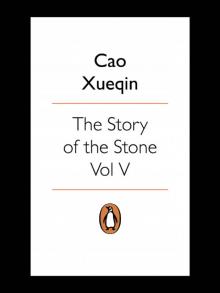 The Dreamer Wakes
The Dreamer Wakes The Warning Voice
The Warning Voice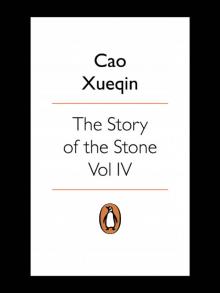 The Debt of Tears
The Debt of Tears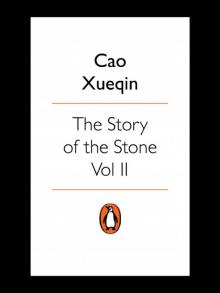 The Crab-Flower Club
The Crab-Flower Club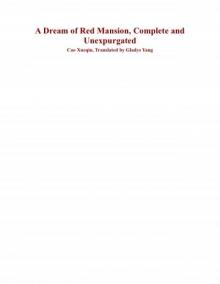 A Dream of Red Mansion
A Dream of Red Mansion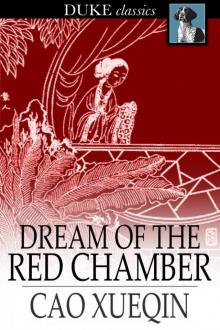 The Dream of the Red Chamber (Selection)
The Dream of the Red Chamber (Selection)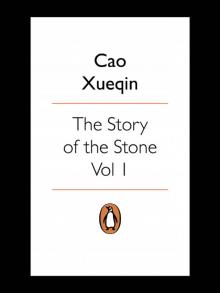 The Golden Days
The Golden Days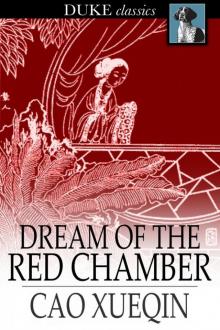 The Dream of the Red Chamber
The Dream of the Red Chamber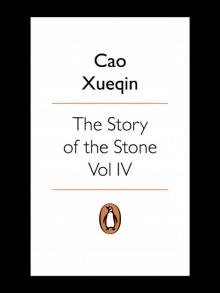 The Story of the Stone
The Story of the Stone